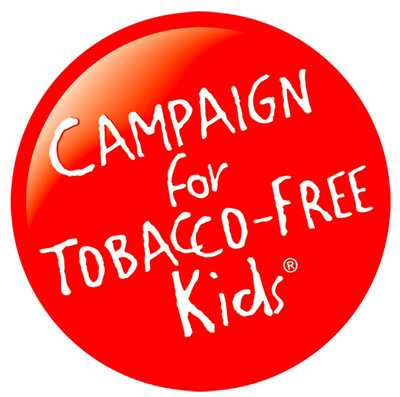Statement of Matthew L. Myers, President, Campaign for Tobacco-Free Kids
Statement of Matthew L. Myers, President, Campaign for Tobacco-Free Kids
WASHINGTON, April 17, 2019 /PRNewswire/ -- The Sacramento City Council delivered a big win for kids over the tobacco industry by voting Tuesday to prohibit the sale of all flavored tobacco products, including flavored e-cigarettes and menthol cigarettes. The Council recognized that harmful and addictive tobacco products should not be sold in candy, fruit and other appealing flavors that entice kids into a lifetime of addiction.

Flavored products are a favorite tobacco industry strategy for targeting kids today. Flavored e-cigarettes have fueled a youth epidemic, with e-cigarette use among high school students rising by 78 percent nationwide in 2018. In addition, flavored cigars have proliferated in recent years and become popular with kids, while more than half of youth smokers – including seven out of ten African-American youth smokers – smoke menthol cigarettes. Prohibiting flavored tobacco products is a critical step to reverse the youth e-cigarette epidemic and continue reducing tobacco use.
The Sacramento City Council voted 7-1 to approve the ordinance. The Sacramento vote provides a major boost for the growing movement to end the sale of flavored tobacco products. San Francisco last year became the first U.S. city to do so when voters overwhelmingly upheld the city's law against a tobacco industry ballot challenge. Other cities, especially in California, have since approved similar measures.
We thank those who have led and supported the Sacramento effort, including Mayor Darrell Steinberg, Council Members Steve Hansen and Angelique Ashby, the Saving Our Legacy Project and the African American Tobacco Control Leadership Council.
Flavored Tobacco Products
Sacramento's prohibition on flavored tobacco products is strongly supported by scientific evidence. There is conclusive evidence that flavors play a critical role in youth initiation and continued use of tobacco products. Flavors improve the taste and mask the harshness of tobacco products, making it easier for kids to try the product and ultimately become addicted. The vast majority of youth tobacco users report starting with a flavored product and that they use tobacco products "because they come in flavors I like." E-cigarettes are sold in more than 15,000 flavors, and flavored cigars make up more than half of the U.S. cigar market. These products come in flavors like gummy bear, cotton candy, cherry dynamite and mango that clearly appeal to kids.
Flavored products, especially Juul, have driven the skyrocketing youth e-cigarette epidemic, which is addicting a new generation of kids and threatens the enormous, decades-long progress our nation has made in reducing youth tobacco use. In 2018 alone, e-cigarette use increased by an alarming 78 percent among high school students and 48 percent among middle school students, according to the 2018 National Youth Tobacco Survey (NYTS). More than 3.6 million middle and high school students were e-cigarette users in 2018 – an increase of 1.5 million in just one year.
Flavored cigars are also popular among youth. Cigars are especially popular among high school boys, who smoke cigars at about the same rate as cigarettes, and among African-American high school students, who smoke cigars at nearly three times the rate of cigarettes, according to the 2018 NYTS. Bloomberg News recently documented how tobacco companies have targeted African-American teens with candy- and fruit-flavored cigars.
There is also more than enough evidence to ban the sale of menthol cigarettes. Menthol cools and numbs the throat and reduces the harshness of tobacco smoke, making menthol cigarettes more appealing for kids who are starting to smoking. Over half of youth smokers ages 12-17 – and seven in ten African-American youth smokers – use menthol cigarettes. A comprehensive FDA scientific analysis, issued in 2013, concluded that menthol cigarettes 1) increase smoking initiation and progression to regular smoking among youth and young adults; 2) increase nicotine dependence (addiction); and 3) reduce success in quitting smoking.
For decades, the tobacco industry has engaged in targeted marketing of menthol cigarettes to African Americans and to youth. The industry's targeting has had a destructive impact as African Americans smoke menthol cigarettes at high rates, quit smoking at lower rates and suffer higher rates of tobacco-caused death and disease.
![]() View original content to download multimedia:http://www.prnewswire.com/news-releases/sacramento-city-council-votes-to-ban-flavored-tobacco-products-300833849.html
View original content to download multimedia:http://www.prnewswire.com/news-releases/sacramento-city-council-votes-to-ban-flavored-tobacco-products-300833849.html
SOURCE Campaign for Tobacco-Free Kids




